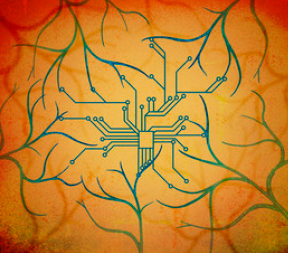New class of potential drugs inhibits inflammation of the brain
 |
Emory researchers have identified a new group of compounds that may protect brain cells from inflammation linked to seizures and neurodegenerative diseases.
The compounds block signals from EP2, one of the four receptors for prostaglandin E2, a hormone connected to fever, childbirth, digestion, and blood pressure regulation. Chemicals that could selectively block EP2 were not previously known. In animals, the EP2 blockers markedly reduced injury to the brain induced after a prolonged seizure, the researchers found.
"EP2 is involved in many disease processes where inflammation is showing up in the nervous system, such as epilepsy, stroke, and neurodegenerative diseases," says Ray Dingledine, chair of the medical school's pharmacology department, who headed up the study.
"Anywhere that inflammation is playing a role via EP2, this class of compounds could be useful. Outside the brain, EP2 blockers could find uses in other diseases with a prominent inflammatory component, such as cancer and inflammatory bowel disease."


